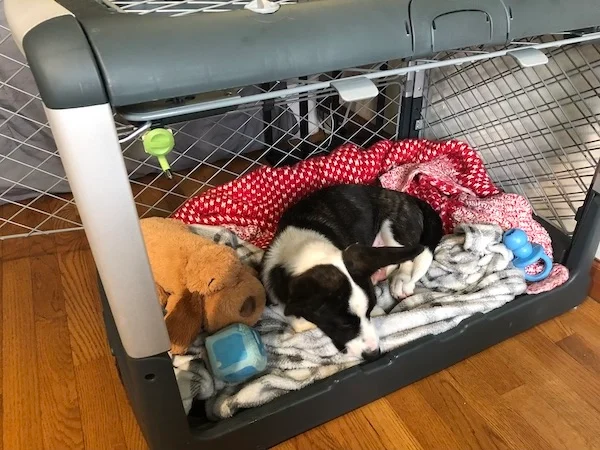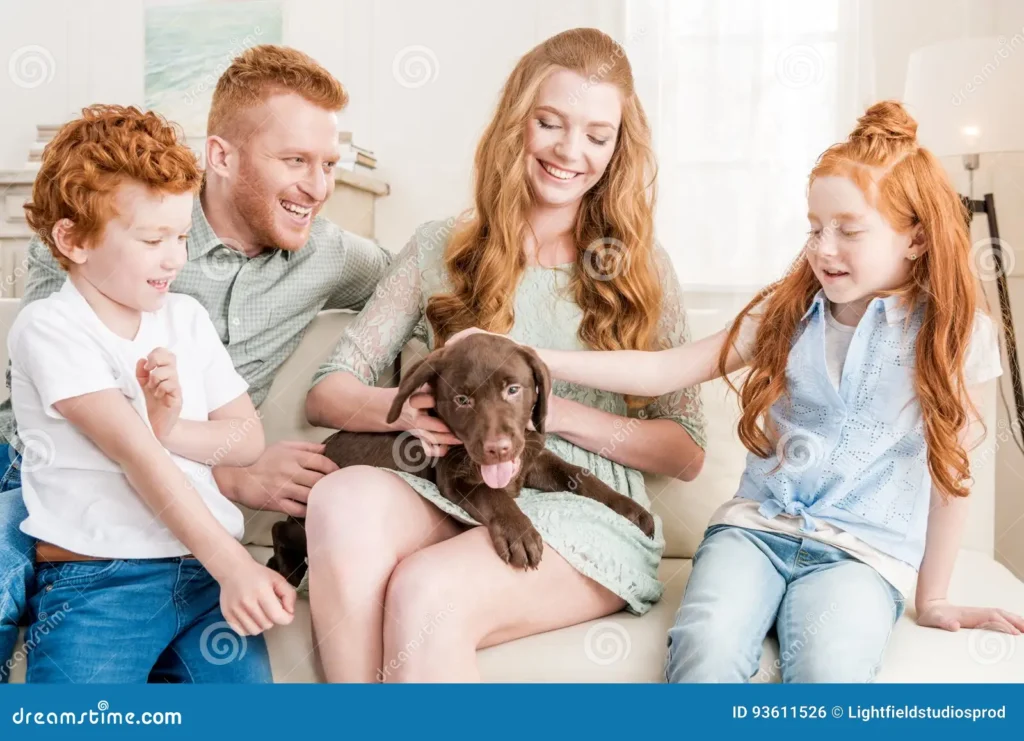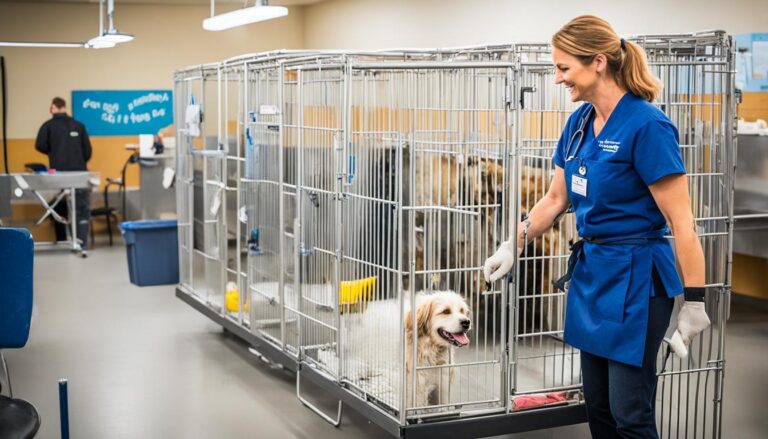The Ultimate 8-Week Puppy Schedule
Bringing home an 8-week-old puppy is an exhilarating adventure filled with cuddles, playtime, and boundless love. However, it also comes with its fair share of challenges that can test even the most prepared pet parents. One of the most effective ways to ensure a smooth transition for both you and your new furry friend is by establishing a consistent and well-thought-out schedule. In this comprehensive guide, we’ll explore why a schedule is crucial for your 8-week-old puppy and provide you with a detailed plan to set your pup up for success in their new home.

Why an 8-Week Puppy Schedule Matters
The first few months of a puppy’s life are critical for their development. In fact, the period before 16 weeks of age is often referred to as the “critical socialization period.” During this time, puppies are like sponges, eagerly absorbing information about their environment and learning how to interact with the world around them.
A well-structured schedule helps your puppy in several important ways:
- Security and Predictability: It provides a sense of security and predictability in their new environment, which can be overwhelming for a young pup.
- Faster House Training: Regular potty breaks establish good bathroom habits, making the house training process smoother and more efficient.
- Behavioral Prevention: By ensuring your puppy’s needs are met consistently, a schedule helps prevent the development of behavioral issues that can arise from boredom, anxiety, or unmet needs.
- Socialization and Training: A schedule allows for proper socialization opportunities and dedicated training time, both crucial for raising a well-adjusted dog.
- Health and Well-being: Consistent feeding times and sleep periods contribute to better digestion, growth, and overall health.
- Bonding Opportunities: Scheduled activities provide regular opportunities for you to bond with your new puppy, strengthening your relationship.
By implementing a schedule early on, you’re not just making your life easier; you’re setting the foundation for a well-adjusted, confident, and happy adult dog.
Essential Components of an 8-Week Puppy Schedule
When creating a schedule for your 8-week-old puppy, there are several key components to consider:
1. Potty Training
Regular bathroom breaks are crucial at this age. Puppies have small bladders and limited control, so frequent opportunities to relieve themselves are essential for successful house training.
2. Feeding Times
Consistent meal times help with digestion and house training. At 8 weeks, puppies typically need 3-4 small meals per day.
3. Sleep and Nap Periods
Puppies need plenty of rest for proper growth and development. An 8-week-old puppy may sleep up to 18-20 hours a day, including nighttime sleep and several daytime naps.
4. Playtime and Exercise
Structured play helps burn energy, provides mental stimulation, and strengthens the bond between you and your pup. However, be mindful not to over-exercise your young puppy, as their joints are still developing.
5. Training Sessions
Short, frequent training sessions are ideal for young puppies. Focus on basic commands and positive reinforcement techniques.
6. Socialization
Exposing your puppy to new experiences, people, animals, and environments in a positive way is essential for their development into a well-adjusted adult dog.
Sample Daily Schedule for an 8-Week-Old Puppy
| Time | Activity | Description |
|---|---|---|
| 6:00 AM | Wake up and potty break | Start the day with an immediate trip outside |
| 6:15 AM | Playtime and bonding | Gentle play and cuddles to start the day positively |
| 7:00 AM | Breakfast | First meal of the day |
| 7:15 AM | Potty break | Post-meal bathroom trip |
| 7:30 AM | Short training session | 5-10 minutes of basic command practice |
| 8:00 AM | Nap time | First morning nap |
| 10:00 AM | Wake up and potty break | Post-nap bathroom trip |
| 10:15 AM | Playtime and socialization | Introduce new toys or experiences |
| 11:00 AM | Nap time | Late morning nap |
| 1:00 PM | Wake up and potty break | Midday bathroom break |
| 1:15 PM | Lunch | Second meal of the day |
| 1:30 PM | Potty break | Post-meal bathroom trip |
| 1:45 PM | Short training session | Another 5-10 minutes of training |
| 2:00 PM | Playtime and exercise | More active play or a short, gentle walk |
| 3:00 PM | Nap time | Afternoon nap |
| 5:00 PM | Wake up and potty break | Post-nap bathroom trip |
| 5:15 PM | Playtime and socialization | Introduce new experiences or people |
| 6:00 PM | Dinner | Final meal of the day |
| 6:15 PM | Potty break | Post-meal bathroom trip |
| 6:30 PM | Family time and gentle play | Calm activities as bedtime approaches |
| 7:30 PM | Last potty break | Final bathroom trip before bed |
| 8:00 PM | Bedtime | Settle in for the night |
Remember, this schedule is a guideline and can be adjusted to fit your lifestyle. The key is to maintain consistency in the order of activities, even if the exact times shift. Your puppy will quickly learn to anticipate what comes next, making transitions smoother and reducing anxiety.

Adjusting the Schedule as Your Puppy Grows
As your puppy grows and develops, their schedule will need to evolve. Here are some general guidelines for adjusting your puppy’s schedule over time:
| Age | Potty Breaks | Feeding | Sleep | Training |
|---|---|---|---|---|
| 8-10 weeks | Every 1-2 hours | 3-4 times daily | 18-20 hours | 5-10 minute sessions |
| 11-14 weeks | Every 2-3 hours | 3 times daily | 16-18 hours | 10-15 minute sessions |
| 15-18 weeks | Every 3-4 hours | 2-3 times daily | 14-16 hours | 15-20 minute sessions |
| 19-24 weeks | Every 4-5 hours | 2 times daily | 12-14 hours | 20-30 minute sessions |
| 6-12 months | Every 6-8 hours | 2 times daily | 10-12 hours | 30+ minute sessions |
While adjusting the schedule, maintain consistency in the overall routine to provide your puppy with a sense of security and predictability. Gradually introduce changes to allow your puppy time to adapt.
Common Questions About 8-Week Puppy Schedules
How often should I take my 8-week-old puppy out to potty?
At 8 weeks old, puppies have limited bladder control. As a general rule, take your puppy out every 1-2 hours during the day, as well as after meals, naps, and play sessions. A good guideline is that puppies can typically “hold it” for about one hour per month of age, plus one. So, an 8-week-old puppy might be able to hold it for up to 3 hours, but it’s best not to push their limits.
How much sleep does an 8-week-old puppy need?
Puppies at this age need a lot of sleep – about 18-20 hours per day. This includes their nighttime sleep and several naps throughout the day. Don’t be alarmed if your puppy seems to sleep a lot; it’s crucial for their growth and development. Ensure your puppy has a quiet, comfortable place to rest undisturbed.
When should I start training my 8-week-old puppy?
Start basic training immediately! At 8 weeks, puppies are capable of learning simple commands like “sit,” “stay,” and “come.” Keep training sessions short (5-10 minutes) and fun. Focus on positive reinforcement techniques, using treats and praise to reward good behavior. Consistency is key – make sure all family members use the same commands and rewards.
How often should I feed my 8-week-old puppy?
At 8 weeks old, puppies should be fed 3-4 small meals per day, spaced evenly throughout their waking hours. This helps maintain their energy levels and aids in house training. Consult with your veterinarian about the appropriate amount and type of food for your specific puppy’s breed and size. As your puppy grows, you’ll gradually reduce the number of meals to 2-3 per day by around 12 weeks of age.
How much exercise does an 8-week-old puppy need?
While exercise is important for puppies, it’s crucial not to overdo it at this young age. Their joints and bones are still developing, and too much exercise can lead to injuries. Short play sessions of 5-10 minutes, several times a day, are usually sufficient. Focus on gentle activities like exploring the yard, playing with soft toys, and short, slow walks. Avoid high-impact activities or long walks until your puppy is older.
How do I handle nighttime potty breaks?
It’s normal for young puppies to need nighttime potty breaks. Set an alarm for every 3-4 hours during the night to take your puppy out. Keep these nighttime trips brief and businesslike – don’t engage in play or give treats. This helps your puppy learn that nighttime is for sleeping, not playing. As your puppy grows and develops better bladder control, you can gradually extend the time between nighttime potty breaks.

Tips for Sticking to Your Puppy’s Schedule
- Be consistent: Try to stick to the same routine every day, even on weekends. Consistency helps your puppy feel secure and learn faster.
- Use positive reinforcement: Reward your puppy with treats and praise when they follow the schedule. This encourages them to continue the desired behavior.
- Adjust as needed: While consistency is key, be prepared to make small adjustments based on your puppy’s individual needs. Every puppy is unique and may require slight modifications to the schedule.
- Involve all family members: Ensure everyone in the household is aware of and follows the schedule. This prevents confusion for your puppy and helps maintain consistency.
- Use visual aids: Consider creating a chart or using a puppy schedule app to help you stay on track. This can be especially helpful in the first few weeks as you adjust to your new routine.
- Be patient: Remember that accidents and setbacks are normal. Stay positive and consistent, and your puppy will eventually catch on.
- Gradually increase freedom: As your puppy becomes more reliable with house training and basic obedience, you can slowly give them more freedom around the house. This should be a gradual process to set your puppy up for success.
- Prepare for schedule disruptions: Life happens, and there may be times when you can’t stick to the exact schedule. Have a plan in place for these situations, such as asking a family member or pet sitter to help maintain the routine.
- Monitor your puppy’s progress: Keep track of your puppy’s development and adjust the schedule as needed. This might include extending the time between potty breaks or increasing the length of training sessions as your puppy grows.
- Make it fun: Incorporate plenty of play and positive interactions into your schedule. This helps your puppy associate the routine with enjoyable experiences.

Conclusion: The Path to a Well-Adjusted Adult Dog
Establishing a consistent schedule for your 8-week-old puppy is one of the best things you can do to set them up for success. It provides structure, aids in house training, and helps prevent behavioral issues down the road. Remember, every puppy is unique, so don’t be afraid to adjust the schedule to fit your puppy’s individual needs and your lifestyle.
As you embark on this journey with your new furry friend, keep in mind that patience and consistency are key. There will be challenges along the way, but with a solid routine in place, you’ll be amazed at how quickly your puppy learns and adapts.
The effort you put into establishing good habits now will pay off with years of companionship with a well-adjusted, happy dog. Your dedication to following a schedule during these crucial early weeks will help shape your puppy into a confident, well-behaved adult dog that’s a joy to have as part of your family.
Enjoy this special time with your new puppy, and remember that the sleepless nights and constant potty breaks won’t last forever. Before you know it, you’ll have a loyal companion who brings endless love and joy to your life. Happy puppy parenting!






